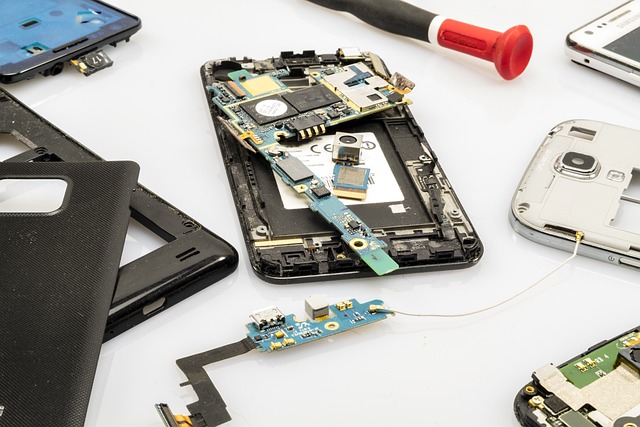South Carolina residents face increasing robocall harassment, driven by scammers using advanced technology and phone harvesting. These automated messages promote fraudulent schemes or threaten legal action, causing stress and disruption. The Telephone Consumer Protection Act (TCPA) offers protection, with the state's Attorney General's Office handling complaints. Consulting robocall attorneys South Carolina specialized in TCPA litigation is crucial for understanding rights, obtaining compensation, and blocking calls. These experts help victims file lawsuits, recover losses, and curb intrusive calls, contributing to a broader fight against robocalls.
In the digital age, South Carolina residents are increasingly plagued by robocalls, leaving many victims feeling frustrated and vulnerable. This article delves into the prevalent issue of automated telemarketing calls, exploring their impact on everyday lives. We interview survivors to understand the true cost, from missed opportunities to emotional distress. Additionally, we uncover legal rights, strategies for protection, and empowering success stories involving robocall attorneys in South Carolina who help victims take control.
Understanding the Prevalence of Robocalls in South Carolina
In the modern era, South Carolina residents, like many across the nation, have been increasingly plagued by an unwanted intruder—the robocall. These automated phone calls, often disguised as legitimate business or government communications, have become a significant nuisance and even a safety concern. With the rise of advanced technology, scammers are utilizing robocalls to target victims on a massive scale, making it crucial for folks in South Carolina to stay informed and protected.
The prevalence of robocalls in the Palmetto State is no coincidence; it’s a growing trend fueled by sophisticated phone harvesting techniques and data brokers who sell contact information. Victims often find themselves on these calls promoting everything from dubious investment schemes to fraudulent government programs. Fortunately, many robocall attorneys South Carolina have emerged to assist those affected, offering legal counsel and representation against these deceptive practices.
The Impact on Victims: A Day in the Life of a Robocall Recipient
Receiving a robocall can be an invasive and unsettling experience, particularly for those who have become frequent targets. Imagine waking up to a phone that won’t stop buzzing with automated messages, each one promising a quick financial gain or warning of impending legal trouble. This is the reality for many South Carolina residents plagued by robocalls from unscrupulous sources. The constant disruption can cause stress, anxiety, and even impact one’s quality of life.
A day in the life of a robocall recipient might start with an alarm going off, followed immediately by a deluge of calls—each one playing a pre-recorded message designed to grab attention. By mid-morning, what begins as annoyance turns into frustration as missed calls pile up, many from unknown numbers. The recipient might spend hours blocking numbers, updating settings, and searching for solutions, all while trying to conduct daily activities. The constant need to defend against these calls can be draining, leaving victims feeling powerless in the face of relentless automated campaigns, a concern that prompts many to seek assistance from robocall attorneys in South Carolina.
Legal Rights and Options for Robocall Victims in SC
Victims of robocalls in South Carolina have legal rights and options available to them. If a caller uses an automatic dialing system or prerecorded messages to contact you, it’s considered a robocall, and state and federal laws protect your privacy. According to the Telephone Consumer Protection Act (TCPA), businesses must obtain prior express consent before contacting consumers via automated calls or text messages. In South Carolina, the Attorney General’s Office handles consumer complaints related to robocalls, and victims can file a complaint with them for alleged violations of the TCPA.
One important step for robocall victims is to document all interactions with the callers, including dates, times, and content of the calls. This information can be crucial when pursuing legal action against the perpetrators. Consulting with a robocall attorney in South Carolina is another strategic move for victims looking to understand their rights and explore potential legal options, such as seeking compensation for damages or blocking future calls. These attorneys specialize in TCPA litigation and can guide individuals through the process of holding violators accountable.
Strategies Used by Robocallers: Common Tactics and How to Spot Them
Robocallers in South Carolina employ various strategies and tactics to reach their targets. Common methods include impersonating government agencies or legitimate businesses, using automated dialers to make bulk calls, and leveraging pre-recorded messages that deliver a scripted sales pitch or fraudulent offer. These callers often target individuals with outdated contact information or those who are less tech-savvy, hoping to catch them off guard.
To spot these robocalls, it’s crucial to remain vigilant and pay attention to certain signs. Unwanted calls from unknown numbers, sudden increases in automated messages, and odd call patterns are red flags. Many robocallers use sophisticated technology to evade blocking efforts, so simply ignoring or hanging up might not stop them. Instead, victims should consider consulting with robocall attorneys in South Carolina who specialize in these matters and can provide legal recourse for harassment, fraud, or invasion of privacy stemming from unwanted robocalls.
Success Stories: When Robocall Victims Take Action with Robocall Attorneys South Carolina
In the face of relentless robocalls, many victims in South Carolina have found a beacon of hope by taking action and reaching out to robocall attorneys South Carolina. These legal professionals specialize in navigating the complexities of telecommunications law and have achieved significant success in holding call centers accountable. Through their expertise, they guide victims through the process of filing lawsuits, seeking compensation for their distress, and putting an end to these intrusive calls.
By taking proactive measures, victims can not only recover financial losses but also contribute to a larger cause by deterring unscrupulous call centers from targeting other unsuspecting individuals. The positive outcomes of such efforts serve as inspiration, demonstrating that standing up against robocalls is a worthwhile endeavor.






